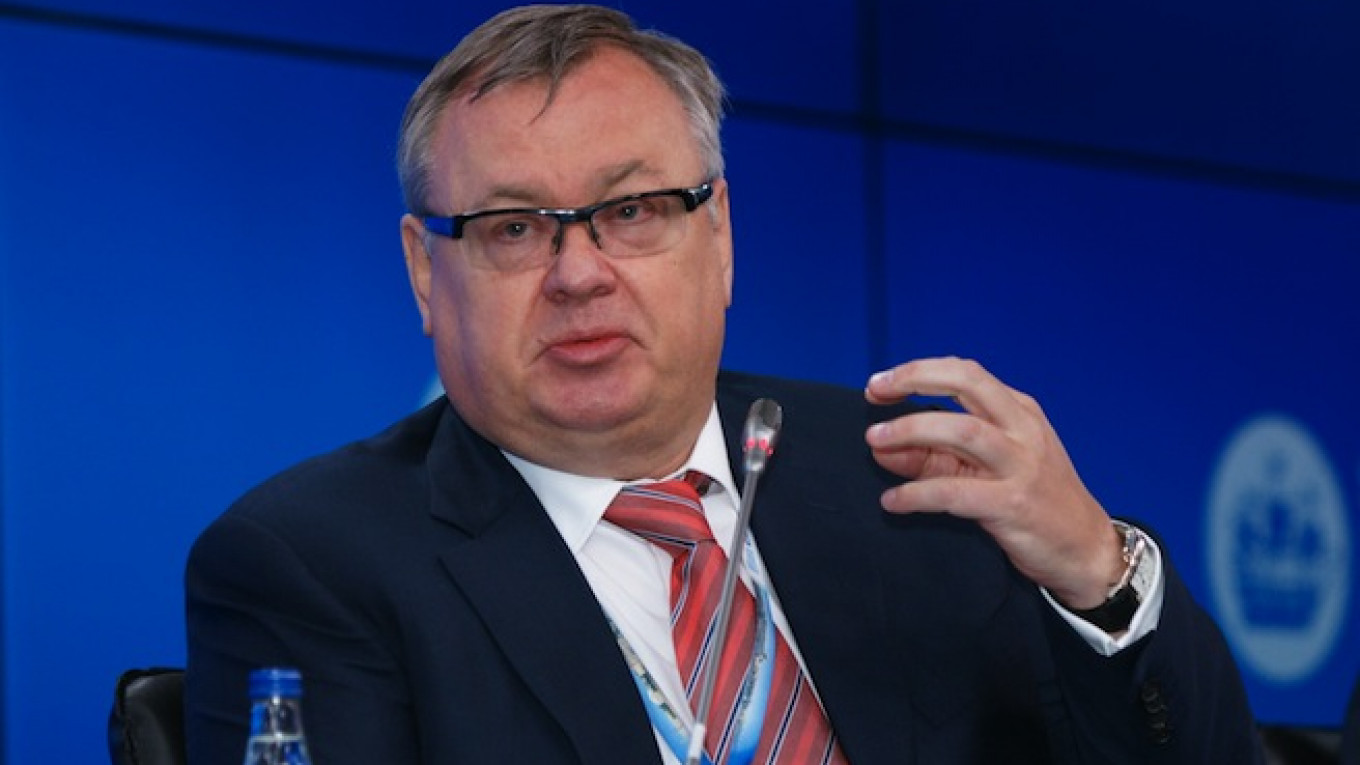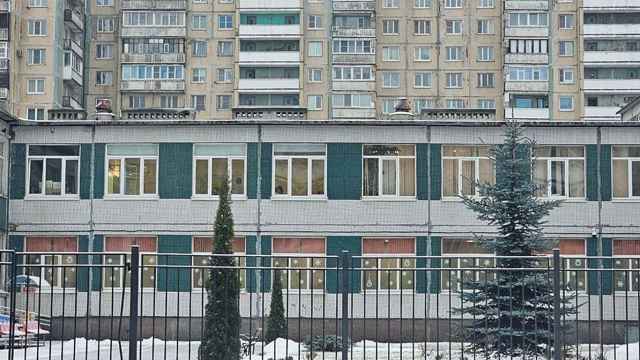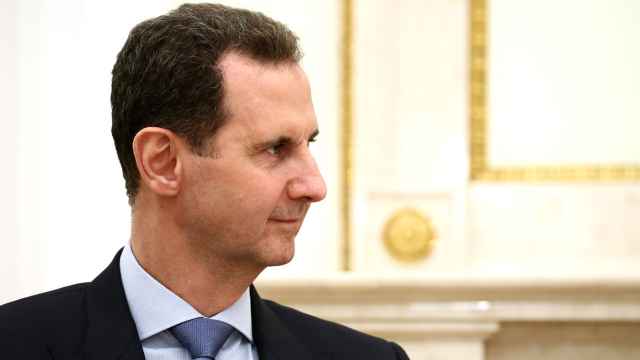Andrei Kostin, head of Russia's second largest bank VTB, on Friday branded a recent law that could push Visa and MasterCard out of the Russian market "excessive," and said Russia could not risk losing the two U.S. payment systems.
Visa and MasterCard, which together process about 90 percent of payments in Russia, "must stay and work here. We shouldn't fall into 'Ura!' patriotism," Kostin was quoted by Interfax as saying in a panel session of the St. Petersburg International Economic Forum.
Legislation passed earlier this month requires Visa and MasterCard to put down a combined $2.9 billion security deposit with Russia's Central Bank starting from July 1. This is some five times more than the companies' combined annual revenue in Russia, according to a recent study by U.S. bank Morgan Stanley.
Finance Minister Anton Siluanov told Itar-Tass on Thursday that he will meet with representatives from Visa and MasterCard during the forum to discuss a compromise. But the new law will "create a problem" for the government and the Central Bank in their negotiations with the payment systems, Kostin said.
Visa and MasterCard in March unilaterally suspended services to two Russian banks in response to a U.S. sanctions list imposed on Russia following the annexation of the Crimean peninsula from Ukraine. The incident sparked a government effort, spearheaded by President Vladimir Putin, to create an independent national payment system and insure against further denials of service.
Although a national payment system could be created by the end of the year, it will not be able to guarantee transactions for citizens outside Russia, "at least, for a number of years," Kostin said.
"They say that only 5 percent of the population uses cards abroad, but this is between five and seven million of our citizens, for whom this is crucially important," Kostin said.
A Message from The Moscow Times:
Dear readers,
We are facing unprecedented challenges. Russia's Prosecutor General's Office has designated The Moscow Times as an "undesirable" organization, criminalizing our work and putting our staff at risk of prosecution. This follows our earlier unjust labeling as a "foreign agent."
These actions are direct attempts to silence independent journalism in Russia. The authorities claim our work "discredits the decisions of the Russian leadership." We see things differently: we strive to provide accurate, unbiased reporting on Russia.
We, the journalists of The Moscow Times, refuse to be silenced. But to continue our work, we need your help.
Your support, no matter how small, makes a world of difference. If you can, please support us monthly starting from just $2. It's quick to set up, and every contribution makes a significant impact.
By supporting The Moscow Times, you're defending open, independent journalism in the face of repression. Thank you for standing with us.
Remind me later.






